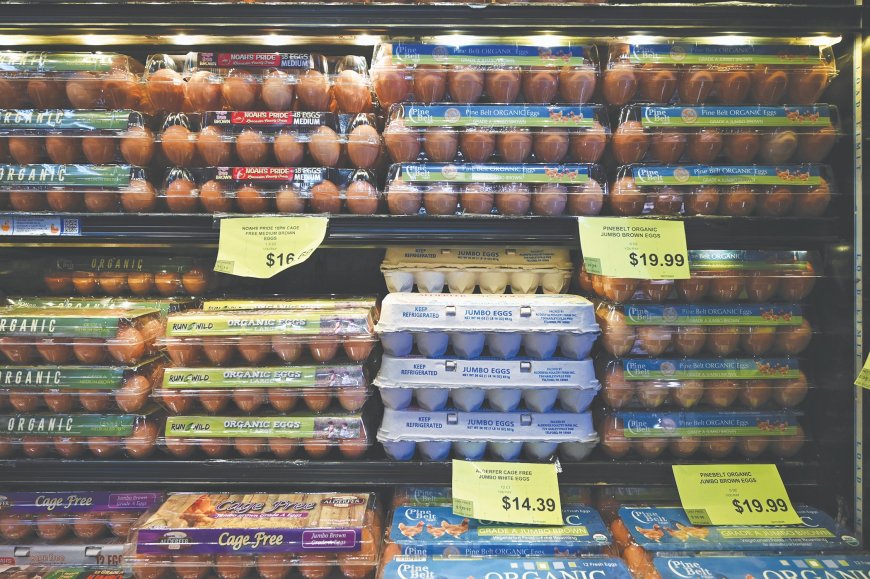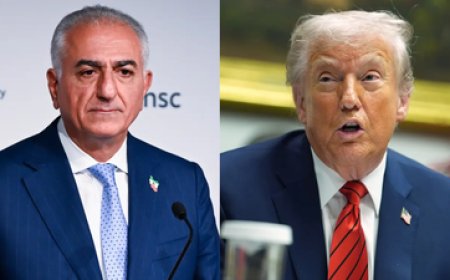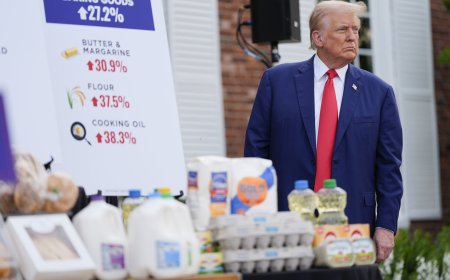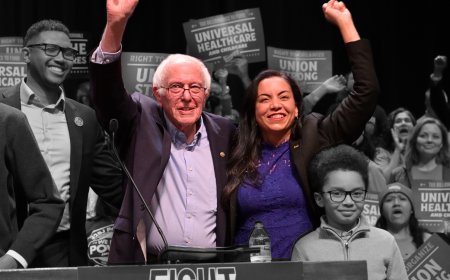What Happens to Antitrust Under Trump?


While campaigning in the late summer of 2024, Donald Trump wooed voters with this declaration: “When I win, I will immediately bring [food] prices down, starting on Day One.” But even before Day One arrived, he was already backpedaling, declaring, “It’s hard to bring things down once they’re up. You know, it’s very hard.”
Indeed, it is. In the best of circumstances, presidents don’t have the power to unilaterally reduce prices. Yet Trump is adopting policies that are overtly inflationary. Aggressive import tariffs, for example, will drive up prices for food and other essential commodities. And the U.S. agriculture and construction sectors are particularly dependent on the immigrant workers Trump promises to deport. All of this will increase working Americans’ already high cost of living.
Still, if Trump were serious about fulfilling his campaign pledge, there is a policy tool he could use to help drive down the prices that most hurt working-class Americans. Namely, he could actively enforce the U.S. antitrust laws.
To understand the opportunity before him, consider that market power is a major factor in driving high prices for goods and services that matter the most to working American families.
In the markets where consumers spend most of their budgets, for example, single companies or tight cliques of just a few firms command outsized market shares and so are able to impose anticompetitively high prices, lower quality, and slow down innovation. For example, four or fewer firms have 70 percent market share or more in sectors ranging from warehouse clubs and supercenters to passenger car rental, passenger airline service, kidney dialysis centers, and breakfast cereals. Tight cabals of large food manufacturers control markets ranging from sugar to baby formula.
Similarly, major consumer-facing markets are also marked by business practices designed to stifle competition from start-ups and smaller players. These include small medical device innovators, independent grocers and pharmacies, and generic pharmaceuticals. Concentrated markets like automobile parts and financial services strengthen incentives for firms to collude to fix prices, rather than compete hard on the merits, also driving up prices to consumers.
Yet another problem is the market power “bottleneck” in consumer-facing supply chains. Take beef packing, where four firms control more than 80 percent of U.S. capacity, or pharmacy benefit managers, where four firms control 70 percent of the national market. Everyone pays the hefty toll to get through these bottlenecks—consumers, through higher prices for essential products; and producers, through lower prices paid for their commodities.
Consider also that these market power bottlenecks are inherently destabilizing, as firms propose mergers expressly to gain bargaining power over even more powerful suppliers and customers. This downward spiral of consolidation has left little of the redundancy in supply chains that is necessary to survive disruption. Just look at the beef packers, who went dark during the COVID-19 pandemic while beef prices spiked. Or consider what happened to the supply of IV fluids after a major hurricane in Florida took out a facility owned by a firm that controls 60 percent of the market.
The U.S. antitrust laws are among the most potent tools the government has to promote fair competition and thereby protect consumers from monopoly prices. For example, Barack Obama’s Department of Justice scored a double header in the 2010s in blocking two mergers between major health insurers, Anthem with Cigna and Aetna with Humana. Those deals would have raised insurance premiums for tens of millions of consumers. Likewise, in the 2010s, the Federal Trade Commission enjoined the merger of the broadline food distributors Sysco and U.S. Foods.
The Biden administration’s antitrust chiefs, while concentrating on actions against large digital platforms that did not directly affect consumer prices, also stepped on the gas to block harmful mergers that hit consumers directly in their pocketbooks, with a palpable impact on their cost of living.
For example, the Biden enforcers blocked the merger of the grocery giants Kroger and Albertson, the combination of which would almost certainly have driven up the costs of food. In enjoining the merger of JetBlue and Spirit, the Biden enforcers preserved choice and low fares for budget air travelers. To keep rental housing prices down, the Justice Department took action against RealPage, a digital platform for matching up tenants with housing providers that allegedly fixes prices at anticompetitively high levels. The department also brought suit against Live Nation Entertainment—which had been formed in 2010 by the merger of Live Nation and Ticketmaster—for monopolizing the market for tickets to live events.
If, as Trump claims, he is a tribune for the nation’s working class, he not only will employ the authority granted to the Justice Department and the FTC to defend consumer interests but also will explain why market power is at the core of the economic problems facing working-class and other Americans. His antitrust enforcers will use the full force of the antitrust laws to police anticompetitive agreements and practices that squeeze out smaller players in the food, housing, transportation, health care, insurance, and retirement markets. The federal government’s ability to enjoin mergers that would substantially eliminate competition and drive up prices for consumers is the first line of defense against the emergence of anticompetitive threats like monopolies and oligopolies.
Will Trump do this? We don’t know yet, but we do know what to watch for. For example, if the administration fails to act against harmful mergers and business practices that hurt consumers or uses antitrust to target companies or issues that are the source of grievances and disputes, it will be clear that Trump’s campaign rhetoric was a bill of goods. Democrats should make sure the public pays attention to how antitrust unfolds, or not, under the current administration.
If Democrats expect to reap electoral advantage in 2028, they also must themselves fully embrace the importance of antitrust policy and explain how it directly impacts kitchen table issues, particularly those affecting working Americans, who make up the plurality of voters. In an era where the markets that working families most depend on lack competition and fail to deliver fairly priced goods and services, antitrust enforcement is an essential, all-American position. Whichever party grabs it is likely to prevail.














































